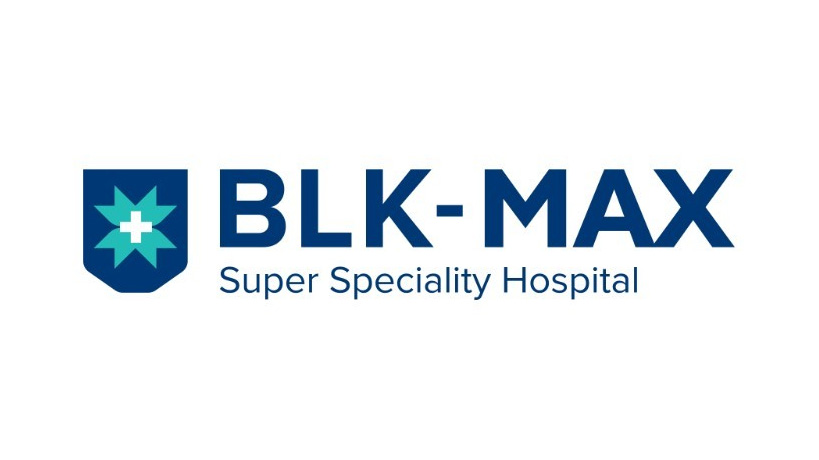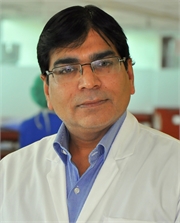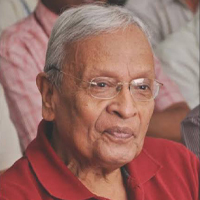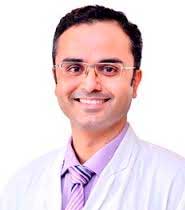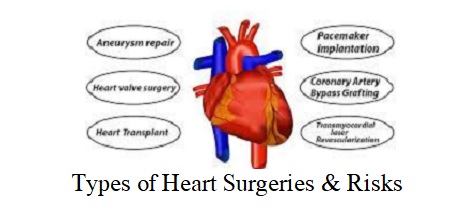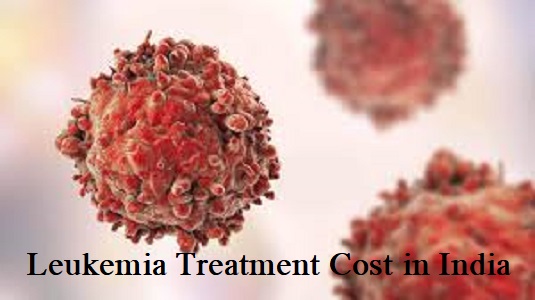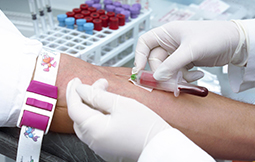
Blood cancers are also named hematologic cancers. They occur when there is a disruption in the production of blood cells. The synthesis of all blood cells usually takes place in the bone marrow. Bone marrow is the spongy focal center of the bone. Abnormal hematopoiesis in the bone marrow leads to abnormal growth of the blood cells. An increased number of immature and poorly developed white blood cells are responsible for blood cancer. All blood cells of the body originate from parent cells called stem cells. Red blood cells move oxygen to the body’s tissues.
Free Consultation: For Consultation, Send Us Your Medical Reports By WhatsApp at +91-9643 443 814Get Free Treatment Plan From Top Hospital
Attach Medical Report
Blood Cancer: Types, Symptoms, Treatment, Cost, Recovery & Survival Rate
An estimated figure of approximately 1.24 million populations is diagnosed with blood cancer worldwide annually, accounting for 6% of all cancer cases. Further, these multitudes seem to be increasing day by day, month by month. However, with evolving technology and skilled doctors in India, the blood cancer survival rates have also increased. The diagnosis of one getting blood cancer can be bizarre disclosure for anyone. But with the right guidance and proper approach at the right time, blood cancers are relatively curable now.
You can also be a blood cancer survivor. What you need is the correct guidance, treatment, and strategy for the stage of cancer.
Blood cancers attack the blood, bone marrow, and lymphatic system. There is a dysfunction in the production of cells in the bone marrow. And abnormal white blood cells are produced in large numbers. These changes wreak havoc on the synthesis of the other blood cells leading to a range of symptoms. Also, the deposits of the blood cancer cells elsewhere in the body present as a set of malignancies. However, the positive and the good news regarding the blood cancer treatment is that it is very easily accessible and has been advancing rapidly. Some chronic and slow-progressing blood cancers are monitored and given oral medication. But people with aggressive and acute blood cancers may need intense and presumptuous treatment like chemotherapy and seldom need radiation and stem cell transplantation. In conclusion, the type of blood cancer treatment advised for a patient varies according to the severity of cancer. The need and choices of the patient too are into consideration for the treatment.
Blood cancers are also named hematologic cancers. They occur when there is a disruption in the production of blood cells. The synthesis of all blood cells usually takes place in the bone marrow. Bone marrow is the spongy focal center of the bone. Abnormal hematopoiesis in the bone marrow leads to abnormal growth of the blood cells. An increased number of immature and poorly developed white blood cells are responsible for blood cancer. All blood cells of the body originate from parent cells called stem cells. Red blood cells move oxygen to the body’s tissues. White blood cells help to fight infections and any other harmful invaders. Platelets are the blood cells that help the blood clot and help in ceasing at the bleeding sites. Blood cancer is primary cancer affecting the bone marrow.
BLOOD CANCER TYPES:
Depending upon the type of cells involved, it is of three main types:
1. BLOOD CANCER – LEUKEMIA:
Leukemia is cancer that originates from white blood cells while they are forming. In leukemia, the stem cells in the bone marrow make an increased number of abnormal white cells in the blood that don’t work, leading to a weakened immune system. Leukemia may also cause a reduced number of red blood cells and platelets.
The main types of leukemia are after the types of cells they originate from
- Lymphocytic leukemia: It affects white cells called Lymphocytes. In this cancer, excessive lymphoid stem cells develop into abnormal lymphocytes.
- Myeloid leukemia: Myeloid leukemia affects myeloid cells of the body. In this disease, too many myeloid cells become abnormal. And they divide into abnormal myeloblast or white blood cells. As a result, there is an increase in abnormal white blood cells and a resultant reduction of red blood cells and platelets.
Lymphocytic and myeloid leukemia is acute and progresses quickly. Or it can be chronic and would take months or years to develop.
- Acute lymphocytic leukemia
- Acute myeloid leukemia
- Chronic lymphocytic leukemia
- Chronic myeloid leukemia
Blood cancer or leukemia affects which gender predominantly?
Acute and chronic leukemia is higher in men than in women.
What age is affected by blood cancer?
Acute lymphocytic leukemia is a disease in children and young adults. Chronic lymphocytic leukemia appears in the elderly.
Acute myeloid occurs at all ages. And chronic lymphocytic leukemia is found in the middle ages.
2. BLOOD CANCER- LYMPHOMA:
Lymphoma is cancer that originates in the lymphocytes. The lymphocytes become abnormal and multiply. They create more abnormal cells that don’t work.
There are further two types of lymphoma:
- Hodgkin lymphoma
- Non-Hodgkin lymphoma
In Hodgkin lymphoma, abnormal cells spread cancer uniformly from one lymph node to another. A non-Hodgkin lymphoma spreads in a non-orderly fashion.
- BLOOD CANCER- MYELOMA/ MULTIPLE MYELOMA:
Myeloma starts when there is a mistake with bone marrow while making plasma cells, a type of white cell in the blood. Plasma cells process antibodies to fight infections. Under the diseased condition, the plasma cells divide to make more myeloma cells resulting in monoclonal antibodies which fail to fight the infections. Also, a lack of immune cells and antibodies leaves the body susceptible to infections. Due to this, myeloma patients have low immunity and have high chances of infection. A consequential reduction of red blood cells and platelets in such malignancies leads to anemia and bleeding tendencies. Myeloma cells can build up anywhere in the body hence called multiple myeloma. Myeloma cells damage and break down nearby bones leading to increased calcium levels in the blood. Also, the kidney’s functionalities are disturbed.
Blood cancer symptoms vary according to the severity of the disease. If the disease condition is acute, there are aggressive symptoms related to the disease. While chronic, there might be symptoms that develop over a while. The common symptoms of blood cancer would include:
- Low hemoglobin, palpitation, breathlessness, pale skin, lethargy
- Weight loss, unexplained weakness, loss of appetite, night sweats
- Severe abdominal pain
- Bleeding tendencies such as bleeding from the nose, gums, easy bruising, irregular periods in females, and abnormal accumulation of blood may occur.
- Visual disturbances are associated with headaches and blurry vision.
- Nervous disabilities like confusion and dilemma are common.
- The facial rash is common in young children with frequent infection probabilities.
- Frequent infection may also result in lymph nodes getting enlarged.
- Bone and back pain is an often complaint. Bones are in a weak state. The minimal strain on the body may result in bone fractures.
- Urine expulsion is markedly decreased and associated with difficulty while passing it.
Blood Cancer Treatment in India - Pre-Procedure

India boasts of advances in the medicinal field of blood cancer treatment. Blood cancer treatment in India has evolved round the clock. The best hospitals serve with a set of oncologists, hematologists, and bone marrow transplant physicians available at any given time. With the advancement in technology, India has observed a positive upward curve in the rate of remission of symptoms. Along with this, there are similar inferences related to the survival rate of the patients.
As per recent research in the blood cancer treatment in India, scientists have recognized a distinct gene mutation for steady and efficient outcomes. This recovery would only be possible provided the treatment is undertaken in the initial phase of the disease. With advanced technology, protocols, and specialist doctors in India, India can provide the best cancer care and outcomes with added cost-effective aspects.
We have a curated list of the best blood cancer treatment hospitals to assist your loved one to overcome the disease.
We have detailed each of the best hospitals concerning their group of specialists, accreditations, facilities, and convenience to help you evaluate the choices that are accessible for you. We trust that they will have the essentialities to treat your illness and convey the best ideal result.
Before starting cancer treatment, the primary concern is to analyze the cancer stage. Few investigations are required to determine the cancer stage. Based on the cancer stage, blood cancer treatment varies from person to person. Tests like scans, biopsies, and routine tests would be required depending upon the cancer stage. Blood cancer is determined as stages based on the level of metastasis. Metastasis is nothing but the deposition of abnormal cancer cells elsewhere in the body apart from its origin. According to the symptoms and the pace of metastasis, the various stages of blood cancer are differentiated.
Stage 1: The primary stage incorporates an increase in the lymph node size. This occurs because of the sudden abnormal multiplication of the lymphocytes. The prognosis of this stage is good considering there is no involvement of other parts of the body.
Stage 2: In the subsequent stage, the lymph nodes with the spleen and liver, get involved and enlarged. With the involvement of visceral organs, the abnormal growth of lymphocytes is exceptionally high at this stage.
Stage 3: At the level of this stage, the abnormal lymphocytes hamper the production of the other blood cells like red blood cells. There is a resultant anemic condition. Also, there is a spread of metastasis to more than two organs.
Stage 4: This is the last stage of blood cancer with a high-risk proportion. The number of platelets in the blood begins to drop rapidly. The impacted cells begin harming the lungs and different organs. The organs affected earlier get severely affected.
Blood Cancer Treatment in India - During Procedure

STEM CELL TRANSPLANTATION
Stem cell transplantation is a procedure in which the diseased bone marrow is replaced with the healthy bone marrow. This treatment would primarily involve relatively high doses of chemotherapy or high-frequency radiation to destroy the existing cancer cells in the bone marrow or the enlarged lymph nodes. The substitute healthy blood-forming hemopoietic stem cells are injected through a venous puncture. These stem cells produce normal and healthy blood cells for the proper and normal functioning of the body.
Stem cells from various sites are derived. Depending upon the sites the stem cell is derived from transplant procedure may be a Bone marrow transplant (BMT), a peripheral blood stem cell transplant, or a cord blood transplant, derived from the blood of the umbilical cord.
There are two main kinds of stem cell transplantation. They are named based on the donor of the stem cells.
- Autologous transplantation: Auto means “Self” In this procedure, the stem cells are from the patient. These cells enter the patient’s own body after elimination and treatment.
- Allogeneic transplantation: Allo means other. The stem cells are from a family member of the patient. It can also be an anonymous donor.
The purpose is to replace the disease-causing agents – cancer cells with healthy cells. With the healthy cells in the body, there would naturally be a decrease in the symptoms leading to better living standards.
Chemotherapy is one of the majorly used blood cancer treatments. In this procedure, various chemicals are used to destroy the cancer cells. It is usually a milder form of treatment for blood cancer. It’s non-intensive and known to have fewer side effects when compared to other forms of treatment.
The treatment involves the usage of these chemicals which are specially designed to destroy the abnormal cancer cells. Along with eliminating the cancer cells the medicines equally work to hinder the multiplication of the cells. According to the disease condition and severity, the patient has advised a single type of drug or a combination. These may be in oral pill form or an intravenous route drug, injected into the body through the vein.
RADIATION THERAPY
Radiation therapy is also one of the treatments used for destroying cancer cells in this procedure. In this therapy, high-intensity radiations are used to kill and stop the overgrowth of the disease-causing blood cancer cells. It would require you to lie on the table with a large radiation machine. The machine would revolve around you. It projects high-frequency radiations over the whole body. The radiation would focus on specific regions which have been affected by cancer. This therapy is recommended before stem cell transplantation.
TARGETED THERAPY:
This type of therapy would involve the killing of malignant blood cells. It is done precisely without harming the normal cells of the body. The main aim is to target the protein present in the cancer cells. It would help to seize the abnormal multiplication of the cancer cells. Also, it leads to apoptosis or suicide of the cancer cell.
The most common targeted therapies are monoclonal antibodies and small-molecule drugs.
Monoclonal antibodies: They specifically bind the cancer cells. Also, block the area adjacent to cancer.
Small molecule drugs: These small molecule drugs block the multiplication of the cancer cells. An example of these drugs is angiogenesis inhibitors which inhibit the formation of new blood vessels and capillaries. Nutrition to the tumor is from the new blood vessels. With proper nutrition, tumors continue to grow. Inhibition of new blood vessels results in starvation of cancer. And it naturally shrinks to death of the cancerous tissue.
IMMUNOTHERAPY:
This treatment activates the immune system to destroy cancer cells. It can work directly with the body’s immune system to slow growth and destroy cancer cells. Immunotherapy treatment is done for a week or several weeks. In most cases, you will receive a shot of immunotherapy into a vein over a few hours. There are few side effects of having immunotherapy. Depending upon the agent used may also differ from person to person. The treatments often may produce rashes or swelling at the injection area. It can also cause headaches, muscle aches, fever, and weakness. Immunotherapy destroys cancer cells by strengthening the immune system. It slows the growth of the cancer cells or destroys them.
Following are the types of Immunotherapy:
- Cytokines: White blood cells make a specific type of protein that helps regulate the immune system. These also slow the growth of cancer cells. These are namely interleukins and interferons.
- Gene therapy: is a type of therapy in which genetic material is introduced using a viral vector to destroy the cancer cell.
- Monoclonal antibodies: These are antibodies produced in the laboratory. They bind to the cancer cells and help the immune system identify them. By this, the cancer cells get easily caught and killed in the blood and bone marrow
Blood Cancer Treatment in India - Post-Procedure

The fundamental target of most blood cancer therapies is a reduction in the symptoms and growth of the cancer cells. The cancer treatment is aimed at eliminating the malignant cells from the body. When your therapy seems to have been completed, your medical services group will accomplish more tests, like the ones done earlier for diagnosis. This is to recheck and verify if there are any cancer cells left out in the body. After confirming the condition, further treatment to be used may be advised. This would be according to the health and need of the patient.
Blood Cancer Treatment in India - Risk & Complications

The risk and complications regarding blood cancer treatment vary from person to person. Each of the cases may respond to the respective treatment differently. This may involve short term side effects and long term side effects
- Short-term side effects are experienced by the patient during the treatment or shortly after it.
- Long-term side effects may start slowly and could last for a long time. These side effects could be for a month or a year. Sometimes it may even take several years to wean off.

Top Blood Cancer Doctors in India

Best Blood Cancer Hospitals in India
Book An Appointment for Blood Cancer Treatment in India

Get Free Treatment Plan From Top Hospital
Attach Medical Report

Cost Blood Cancer Treatment in India

Success Rate of Blood Cancer Treatment in India
Contact Form
Attach Medical Report
FAQs (FAQs (Frequently Asked Questions))

What is blood cancer?
Blood cancer or hematologic cancer begins in the bone marrow, which produces most of the blood. Blood cancer occurs when abnormal blood cells start to expand uncontrollably and hinders the ability of normal blood cells to fight infection and generate different blood cells.
What are the different types of blood cancer?
We can classify blood cancer can into three broad groups –
- Leukemia is a cancer of the white blood cells or cells that develop into white blood cells. White blood cells can’t fight against infection in your body when you have leukemia. Leukemia is bifurcated into acute (fast-growing) and chronic (slow-growing).
- Lymphoma is the lymphatic system, particularly lymph nodes. The lymphatic system is a part of the immune system and helps to filter out hazardous chemicals. Lymphocytes, a kind of white blood cell, are affected. Hodgkin lymphoma is the most commonly occurring blood cancer.
- Myeloma is a cancer of the plasma cells, which produce antibodies to fight infection. Myeloma can compromise your body’s immune system making it vulnerable to infection.
What are the stages of blood cancer and how is it treated?
Doctors use the Rai system to describe different stages of blood cancer.
- Stage 0 – The white blood cell count is high, but there is no other symptom.
- Stage 1 – White blood cell count is high, and lymph nodes may be enlarged.
- Stage 2- Anemia and high white blood cell count, lymph nodes may or may not be enlarged.
- Stage 3- Anemia and high white blood cell count, lymph nodes and liver/spleen may or may not be enlarged.
- Stage 4- high white blood cell count and low platelet count. Other symptoms may include anemia, and lymph nodes and liver/spleen may or may not be enlarged.
Treatment for blood cancer will depend on the type, stage, spread, general health, and age. Treatment for blood cancer are-
- Chemotherapy aims to kill or slow the growth of cancer cells. The anticancer medication can be injected into the body or taken orally.
- Radiation therapy treats cancer with the help of high-energy rays used to kill cancer cells.
- Stem cell transplant involves destroying cancerous blood cells and injecting healthy stem cells to help the body create healthy blood.
- Surgery – the doctor removes afflicted lymph nodes.
- Immunotherapy stimulates the body’s defenses to target and destroy cancer cells.
- Targeted therapy uses drugs that target cancer cells without harming healthy cells.
What are the symptoms of blood cancer and how is it diagnosed?
The symptoms of blood cancer can vary depending on the type, but some common symptoms are –
- Chronic fatigue and weakness
- Persistent fever and chills
- Drenching night sweats
- Unusual bruising or bleeding
- Bone and joint pain
- Unexplained weight loss
- Swollen lymph nodes
- Enlarged liver or spleen
- Headaches
- Breathless
Your doctor will begin by asking for details about your medical history and symptoms. The doctor will conduct a thorough physical examination and order some blood and diagnostic tests.
- A complete Blood Count (CBC) shows the number of white blood cells, red blood cells, and platelets, among other blood cell types.
- Blood Chemistry Test – This test measures the concentration of various chemicals in the blood.
- Imaging tests can be useful in determining the spread and type of cancer. The doctor may look for enlarged lymph nodes or images of soft tissues and bones. The common imaging tests are – CT Scan, PET Scan, and MRI Scan.
- Bone Marrow Biopsy – Your doctor may order a bone marrow biopsy to determine the proportion of normal and abnormal cells. They may examine bone marrow to study changes in your DNA that could promote the growth of cancer cells.
What are the different treatment options available for blood cancer?
Treatment options will depend on the type of blood cancer, the health of the patient, and their personal preference. Patients may need a single treatment or a combination of treatments. The doctor will provide a treatment plan.
Intensive treatment uses potent medication and intensive therapies to stop the spread of cancer. These therapies are linked with some side effects. Some intensive therapies used may include –
- Chemotherapy with high dosages or standard dosages kills cancer cells and prevents infection from replicating.
- Stem cell transplant after chemotherapy kills the affected cells new stem cells from a donor or the patient are infused into the body. The new stem cells will produce fresh blood cells.
- Radiotherapy uses radioactive rays to eliminate cancer cells from a specific region of the body.
- Surgery is rare in blood cancer, but the surgeon may carry out a splenectomy or removal of the spleen.
Non-invasive therapies are gentler for the body and have fewer side effects. The cancer cells may not kill, but treatment helps keep the cells in remission and maintain physical stability. Some non-invasive therapies are –
- Low doses of chemotherapy
- Immunotherapy or therapy strengthens your immune system and combats malignant cells.
Curative treatment – The doctor may prescribe curative treatment if you cannot handle the strong treatment. Curative treatments are low-risk procedures that may not completely eradicate cancer cells but can control them for a long time. The benefits include fewer adverse effects and minimal danger.
Wait and Watch or active surveillance treatment is used when cancer progresses very slowly. Patients undergo periodic tests to check the spread of the disease, and treatment begins with very low doses.
Supportive treatment is used in combination with invasive and non-invasive treatment. The treatment helps you manage symptoms.
Palliative treatment can help you in coping with your symptoms. It assists you in retaining quality despite any difficulties.
Follow-up care: Follow-up care is required in case of relapse and complicated symptoms. The treatment ensures that you have received the proper care.
What are some of the best hospitals in India for the treatment of blood cancer?
Several hospitals in India provide excellent treatment for blood cancer. Consult a hematologist to decide the best course of action for a specific type of blood cancer. The hospitals have cutting-edge diagnostic and treatment facilities and skilled professionals to provide patients with the best care possible. The best hospitals in India for blood cancer are –
- Medanta – The Medicity Hospital, Gurgaon
- Artemis Hospital, Gurgaon
- Apollo Hospital, Chennai
- Fortis Memorial Research Institute, Gurgaon
- Kokilabean Dhirubahi Ambani Hospital, Mumbai
What types of specialists are involved in the treatment of blood cancer?
A hematologist-oncologist specializes in treating patients with blood cancer. Some other specialists involved are medical oncologists, radio-oncologist, and surgeons.
What types of diagnostic tests and imaging are available at blood cancer hospitals in India?
India has advanced diagnostic and imaging tests to diagnose blood cancer hospitals.
- Physical test – the doctor looks for swollen lymph nodes.
- Blood tests – blood tests like complete blood count and blood chemistry.
- Biopsy – the doctor may remove a sample of tissue to look for the spread of cancer.
- Imaging tests – CT scan, PET Scan, and MRI scan help doctors to identify the spread and type of cancer.
- Spinal tap – The physician removes fluid from the lower spine using a long thin needle. The fluid is tested for leukemia cells or other symptoms.
How are treatment plans for blood cancer developed at these hospitals?
Medical experts comprising hematologists, oncologists, radiologists, and other specialists, develop treatment strategies for blood cancer. The type and stage of cancer, the patient’s general health, and any potential adverse effects of the treatment all influence the precise treatment strategy.
Are there any innovative or advanced treatments available for blood cancer in India?
India offers many cutting-edge and innovative therapies for blood cancer. Treatment options depend on the type of blood cancer, the stage, and the symptoms.
- Immunotherapy
- Stem Cell Transplant
- Targeted therapies
- Chemotherapy
- Radiation
- Bone Marrow transplant
What is the cost of blood cancer treatment in India?
The cost of blood cancer treatment in India ranges from approximately $520 to $30,000, with an average cost of around $15,000. The cost of treatment can depend on several factors like city, admission fees, doctor fees, treatment plan, patient health, and diagnostic tests required.
Are there any support services available for patients and their families at blood cancer hospitals in India?
Yes, there are support services available for patients and their families at blood cancer hospitals in India. These may provide financial, emotional, and practical support through the treatment.
- Support groups – Some hospitals have counselors who offer patients and their families’ emotional support.
- Financial assistance – blood cancer treatment can be expensive, and some hospitals provide financial aid in partnership with NGOs to patients who are not able to afford treatment.
- Palliative care-: Palliative care services aim to enhance the quality of life for cancer patients in an advanced stage of the disease. This may involve symptom management and pain.
What is the success rate for blood cancer treatment at these hospitals?
The success rate of blood cancer treatment has improved dramatically in the last decade. The 5-year survival rate ranges from 60-90%, depending on several factors like treatment methodology, stage of cancer, age, and general health of the patient. Patients who have undergone a bone marrow transplant have an improved survival rate of 75%.
How long is the recovery time after blood cancer treatment in India?
Once your white blood cell count is normal range, you can resume normal activity. It can take approximately 3 to 6 months. It is best to speak with your doctor before starting any regular activities again.
What are the top 10 blood cancer hospitals in India?
The top 10 blood cancer hospitals in India are-
- Fortis Hospital, Gurgaon
- Medanta – The Medicity Hospital, Gurgaon
- Artemis Hospital, Gurgaon
- Apollo Hospital, Chennai
- Indraprastha Apollo Hospital, New Delhi
- BLK Super Specialty Hospital, New Delhi
- Narayana Multispecialty Hospital, Bangalore
- Max Super Specialty Hospital, New Delhi
- Manipal Hospital, New Delhi
What are the best blood cancer doctors in India?
Top best blood cancer doctors in India are-
- Dr. Gaurav Dixit, Hematology, Oncology
- Dr. Amirita Ramaswami, Hematology, Oncology
- Dr. Hari Goyal, Hematology, Oncology
Top Doctors & Surgeons in India
Why Choose Us

Personalized Care
24x7 Supports
Top NABH and JCI accredited Hospitals
Free Cost Estimation & Medical Opinion from Specialist
Get Free Tele/Video Consultation
Visa and Traveling Assistance
Post-surgery with Assistance in Follow-ups







